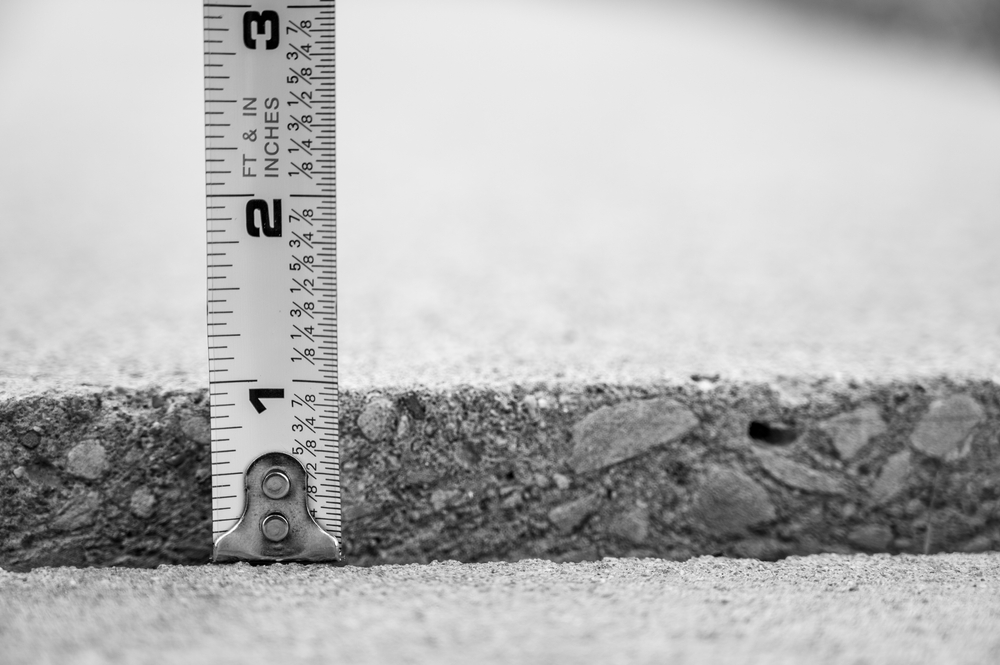In part one of this two-part blog series, we went over some of the basics on concrete-related tripping hazards that may be present on your residential property. While most tend to think of property hazards and liability themes for commercial buildings, these same themes may exist on your home’s property, particularly if someone is injured there due to any issue you are expected to have had prior knowledge of.
At Lift Right Concrete, we’re happy to provide numerous commercial and residential concrete lifting and leveling services, including for those looking to limit any potential property hazards near their home. We’ve saved our clients not only thousands of dollars in expensive concrete slab replacements, but also in hazards avoided and liability issues that you don’t have to worry about. Here’s a further primer on some of the common conditions you should be thinking about on your property if your concrete has settled, plus the role insurance plays here.

Another common issue for homeowners is unevenness in the concrete on their sidewalks or walkways. These can be particularly bothersome from a liability standpoint because such surfaces are often public, meaning many people will walk on them – but you still might be liable if someone is injured due to a concrete defect you should have repaired. If settlement has caused certain raising or sinking issues with your sidewalk slabs, repairs should be performed quickly to remove any related hazards.
Homeowner’s insurance is vital for homeowners, and those who have had concrete issues like the ones we’ve described in this series will often wonder whether this impacts their coverage. The short answer: Yes, and this related back to the theme of risk within the insurance world.
For any kind of insurance, including for your home, the insurance company evaluates your level of risk of a negative event occurring for which you’d require coverage. The higher this risk, the more it will cost you to obtain this insurance, as the insurance company is taking a greater chance. For this reason, if an insurance company is aware of your concrete issues on the property, they may raise your rates due to the risks this presents; down similar lines, if someone is injured on your property due to such hazards, your insurer may raise your rates or even cancel your policy.
In addition, you may be wondering whether homeowners’ insurance covers concrete repairs. In most cases, because insurance companies don’t cover the conditions that lead to concrete damage – issues like settling, erosion and more – these repairs will not be covered. There are some cases where they may be, but you might have to pay more. If repairs are covered, they will be subject to your deductible.
For more on the importance of concrete repair for residential tripping hazards, or to learn about preventing hazards and related themes, speak to the staff at Lift Right Concrete today.